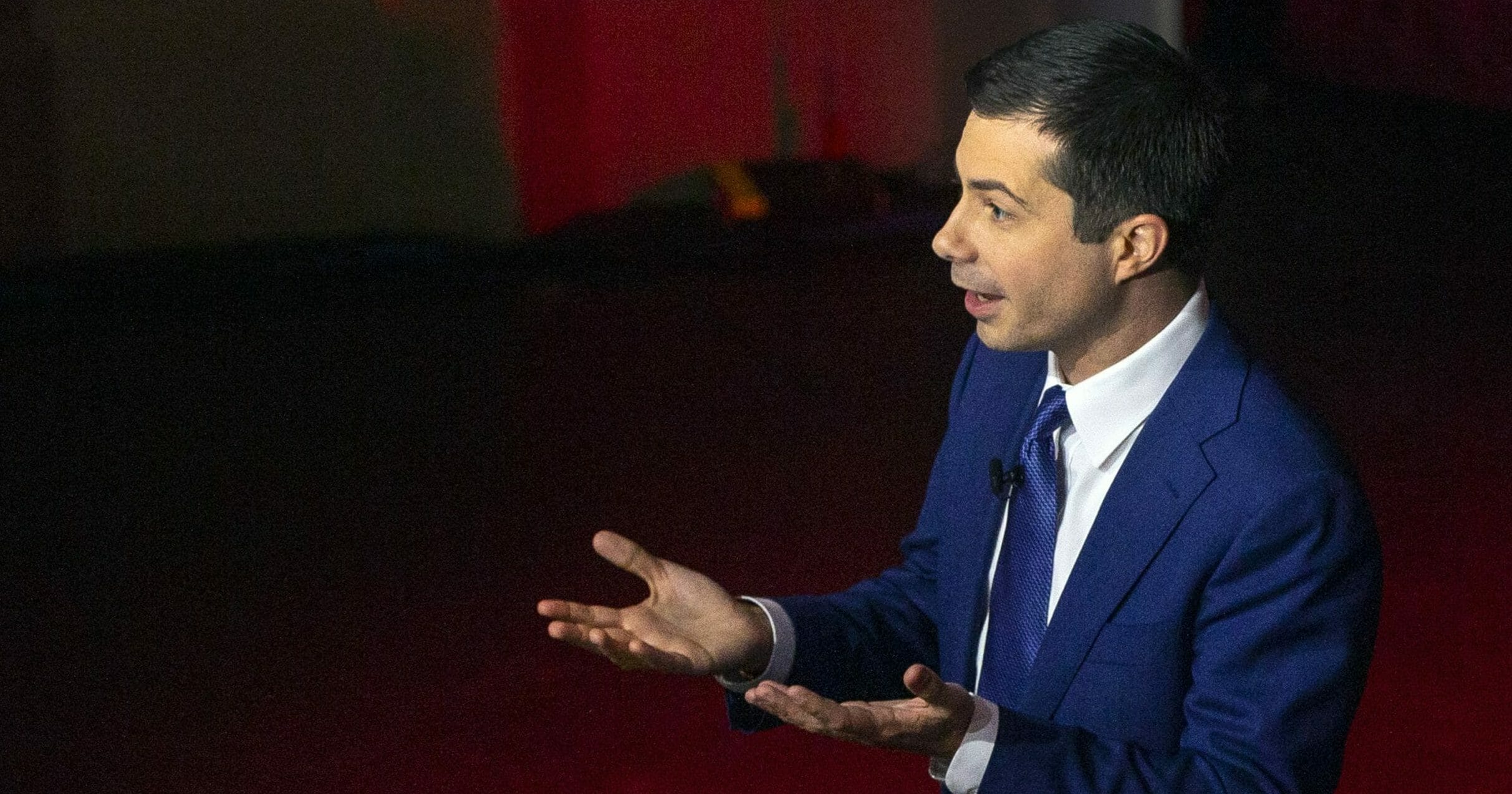
Buttigieg Says He Needs a Gigantic Cash Haul Within Weeks To Stay in Race
Democratic presidential candidate Pete Buttigieg says he needs to raise $13 million to stay competitive through the 14-state Super Tuesday contests on March 3, despite strong finishes in the Iowa caucuses and New Hampshire primary.
The tricky financial picture for one of the surprise candidates of 2020 comes as the 38-year-old former mayor of South Bend, Indiana, reported Thursday that he spent more than twice as much as he brought in during January, even as he was simultaneously ramping up for the Iowa and New Hampshire contests.
But the Iowa Democratic Party’s debacle in reporting results may have dampened what Buttigieg could have expected to raise immediately after Iowa, according to his supporters.
Buttigieg ended with a near-tie in Iowa with Vermont Sen. Bernie Sanders, who has fielded a strong organization and fundraising this cycle after competing strongly against Hillary Clinton for the 2016 presidential nomination.
“The Iowa deal took some luster off what would have been a great night and a great week,” said Bobby Mandell, a Florida lawyer who’s among Buttigieg’s most influential donors. “I know he did fine that week, but not as well as he could have done, had he been able to claim outright victory.”
Mandell said he and Buttigieg’s donors remain upbeat and committed as the candidate squeezes fundraising events in Nevada, ahead of the Saturday caucuses there, and campaign and fundraising jaunts to California, the most delegate-rich prize in the March 3 sweepstakes.
The pace rapidly quickens after Nevada, as Buttigieg races from Nevada to Colorado and Virginia, important Super Tuesday states, before spending most of next week in South Carolina.
Buttigieg’s campaign in South Carolina must show signs of support from African American voters who make up a majority of that state’s Feb. 29 primary electorate.
In the Super Tuesday primaries, Buttigieg faces free-spending multibillionaire Mike Bloomberg, who did not compete in the first four nominating contests but has advertised heavily.
No longer fighting solely to distinguish himself chiefly from Sanders, Buttigieg told donors in the $13 million appeal Thursday, “We are now also up against a billionaire who is throwing colossal sums of money on television instead of doing the work of campaigning.”
We don’t have to choose between revolution and the status quo. Our campaign has shown there’s a way forward that speaks for the rest of us—the majority seeking change. But we need your help to prepare that future.
We need $13M by March 3—chip in to help: https://t.co/lroSSZeS2y pic.twitter.com/yDbkKUpn1f
— Pete Buttigieg (@PeteButtigieg) February 21, 2020
Still, Buttigieg said Thursday he had raised $11 million to date in February, adding to the $6 million in contributions his campaign reported receiving in January.
However, Buttigieg spent $14 million in January, an investment he’d hoped would reap heavily from beating expectations in Iowa. He had only $6.6 million in the bank at the end of the month.
The Iowa Democratic Party, which ran the leadoff caucuses, failed to report complete results for three days, the result of a failure of an electronic reporting program as well as other problems.
The Associated Press has not yet declared a winner in the contest, which remains under review by state and national party officials.
Buttigieg began his climb into the top tier of the 2020 Democratic field last summer after raising nearly $25 million in the second quarter of 2019, part of a $75 million total he raised last year.
The Western Journal has reviewed this Associated Press story and may have altered it prior to publication to ensure that it meets our editorial standards.
Truth and Accuracy
We are committed to truth and accuracy in all of our journalism. Read our editorial standards.
Advertise with The Western Journal and reach millions of highly engaged readers, while supporting our work. Advertise Today.












